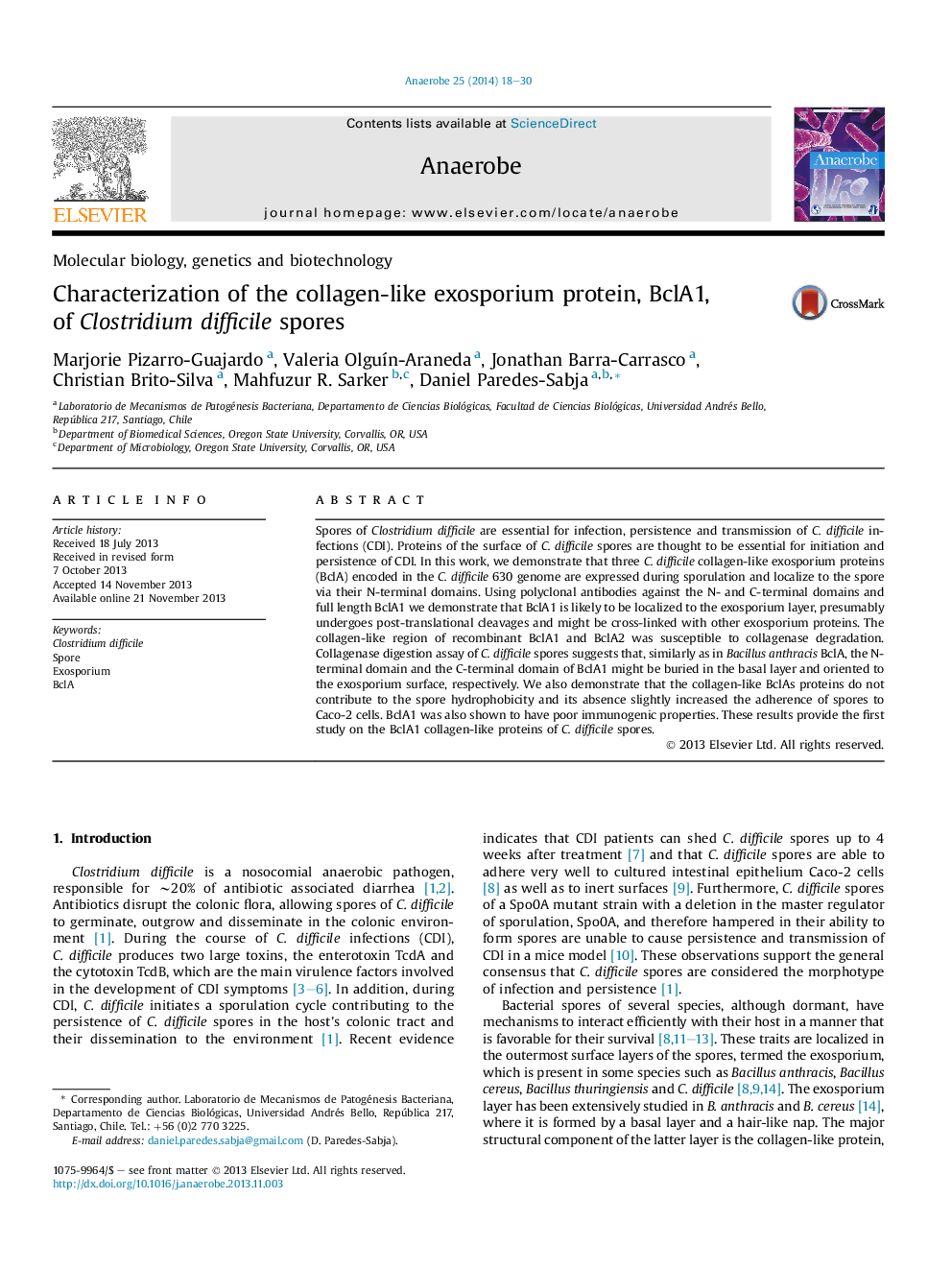| Article ID | Journal | Published Year | Pages | File Type |
|---|---|---|---|---|
| 3395215 | Anaerobe | 2014 | 13 Pages |
•BclA1, BclA2 and BclA3 are expressed during sporulation and localize to the spore.•We demonstrate that BclA1 is localized to the exosporium layer.•The collagen-like region of BclA1 and BclA2 was susceptible to collagenase degradation.
Spores of Clostridium difficile are essential for infection, persistence and transmission of C. difficile infections (CDI). Proteins of the surface of C. difficile spores are thought to be essential for initiation and persistence of CDI. In this work, we demonstrate that three C. difficile collagen-like exosporium proteins (BclA) encoded in the C. difficile 630 genome are expressed during sporulation and localize to the spore via their N-terminal domains. Using polyclonal antibodies against the N- and C-terminal domains and full length BclA1 we demonstrate that BclA1 is likely to be localized to the exosporium layer, presumably undergoes post-translational cleavages and might be cross-linked with other exosporium proteins. The collagen-like region of recombinant BclA1 and BclA2 was susceptible to collagenase degradation. Collagenase digestion assay of C. difficile spores suggests that, similarly as in Bacillus anthracis BclA, the N-terminal domain and the C-terminal domain of BclA1 might be buried in the basal layer and oriented to the exosporium surface, respectively. We also demonstrate that the collagen-like BclAs proteins do not contribute to the spore hydrophobicity and its absence slightly increased the adherence of spores to Caco-2 cells. BclA1 was also shown to have poor immunogenic properties. These results provide the first study on the BclA1 collagen-like proteins of C. difficile spores.
